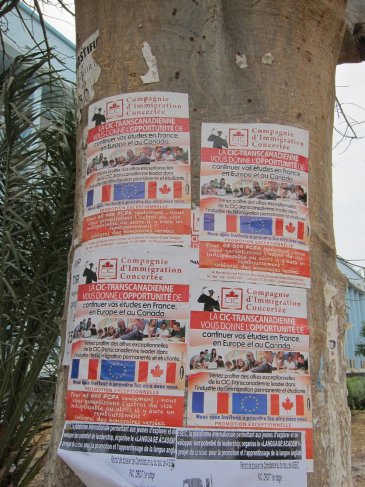While Jordan – also in light of the threat posed by the so-called ‘Islamic State’ in neighbouring Iraq and Syria – has become one of the largest recipients of US military aid worldwide, research on the nature and effects of US-Jordanian military collaboration remains scarce. Funded through US$ 99 million in US military assistance, the… Read more »
This Week in South Sudan – Week 27
Monday 3 July Al Jazeera: “South Sudan’s Wau: Fear and displacement one year on” Tuesday 4 July A new report by Amnesty International, focused on the escalating conflict in the Equatoria region, describes grave human rights violations, including using hunger as a weapon of war, against the civilian population. Wednesday 5 July Unidentified gunmen abducted… Read more »
Jihadi Brides or Female Foreign Fighters? Women in Da’esh
Da’esh has stunned the world with its gross human rights abuses, gendered violence, and practices of sexual slavery, and yet, the organization has attracted a large amount of female recruits. Women who have joined Da’esh have been met with a storm of disbelief and gendered commentary, and have even been designated their own term – ‘jihadi brides’.

A screen shot of an Islamic State propaganda showing the Al-Khansa, an all-female police squad.
A recent policy brief explores agency and women in Da’esh: why women join, their roles, and how women are treated if they return to the West. The brief illuminates how gendered understandings of Western female foreign fighters are affecting judicial processes and potentially creating gaps in our security structure.Read More
This Week in South Sudan – Week 26
Wednesday 28 June The Government of South Sudan (GoSS) denies closure of embassies abroad, saying it has routinely recalled the heads of diplomatic missions in seven countries as the period of their assignments have ended. Thursday 29 June GoSS said it could deny humanitarian aid workers access to rebel-held areas due to security concerns. The… Read more »
Archetypal Enemies Exist in All Religions
Some religious leaders use language which others use to justify terror. These leaders should instead take responsibility for teaching people how to critically interpret religious texts.

Photo: Stephen Radford / Unsplash
“The Day of Judgement will not come about until you fight the Jews. The Jew will hide behind stones and trees. The stones and trees will shout: ‘O Muslims, Allah’s servants, there is a Jew behind me, come and kill him.’”
The Grand Mufti of Jerusalem was quoting a hadith, a saying from early Muslim traditions. The Grand Mufti was speaking at a Fatah conference in 2012. His words provoked strong reactions, both from Israeli political and religious leaders and from international politicians, including the Norwegian foreign minister. All these leaders considered the Grand Mufti’s words to be encouraging terrorism.
Read More
This Week in South Sudan – Week 25
Tuesday 20 June David Shearer, UN Special Representative for South Sudan and Head of UNMISS says fragmentation of the conflict makes sustainable peace more elusive. Meanwhile the UN calls on South Sudan’s leaders to take greater responsibility for their people. The former SPLA chief of general staff, General Paul Malong Awan said he would not… Read more »
Why Don’t All Migrants Return in Times of Crisis?
In the early 2000s, numerous migrants arrived in Spain, attracted by the prospects of finding a job in the country’s booming economy. They quickly grew to represent 11% of the total population in 2008, from 2% in 2000.
But when the financial crisis hit and Spain topped Europe’s unemployment rates, immigrants became disproportionately affected – 35% were jobless, compared to 22% among people with Spanish or double nationality.

Posters advertising the services of the Concerted Immigration Company, from Canada. They offer the opportunity to continue one’s studies in “France, Europe and Canada”. They claim to be the “leader in the industry of permanent and student migration.” It was taken on the campus of the University Cheikh Anta Diop in Dakar. Photo: María Hernández Carretero
Years earlier their labour had been needed and welcome, but as discontent set in some Spaniards started calling for unemployed (especially if also paperless) migrants to “go back” to their countries of origin, now that no jobs were to be found. Some did leave Spain, whether to return to their country of origin or seek better luck elsewhere. Yet many others stayed.
Faced with an economically bleak and politically hostile landscape in Spain, why did so many immigrants choose to stay all the same?
This question was part of the starting point for my chapter in Hope and Uncertainty in Contemporary African Migration where, focusing on the case of Senegalese migration to Spain, I look into why for some, deciding to emigrate can be easier than returning home.
Read More
A PhD by Publication Allows You to Write for Real and Varied Audiences, Inviting Intellectual Exchanges that Benefit your Research
A PhD by publication requires doctoral candidates to submit a set of papers for peer-reviewed journals plus an integrating chapter, rather than the more traditional doctoral dissertation. This remains a less common, sometimes frowned-upon model, but Jørgen Carling outlines eight reasons why a PhD by publication might be a good option. It allows you to write for real, varied audiences, with differing levels of ambition, and can help you build a name for yourself in academia, which is important not only for your career but also as it affords you opportunities for vital intellectual exchanges that may benefit your research.
As a doctoral candidate you may have a choice between submitting a traditional doctoral dissertation and submitting a set of papers for peer-reviewed journals plus an integrating chapter. The latter option, known as a “PhD by publication” or an “article dissertation”, has become the norm in some contexts and is resented in others. I can’t decide for you, but I can give you eight reasons why I think the PhD by publication is often a good model.

Image credit: journals by Barry Silver. This work is licensed under a CC BY 2.0 license.
First, writing journal articles constitutes professional training. It is what academics primarily do, and by writing your dissertation in the form of articles, you learn the craft. (If you abandon academia after completing a PhD it is even more important to know that your work is out there, potentially benefiting others, and not just stored in a dusty library.)
Second, writing journal articles ensures valuable feedback. Regardless of the quality of the supervision you get, the review process in a journal can be a valuable supplement. Having your article accepted in a journal also provides a tangible source of independent recognition, different from your supervisor’s assurances that your work is fine. The peer review process can be filled with disappointments and frustration too but living through that is, for better or worse, part of being an academic. Just make sure that you are not handling it all alone.
This Week in South Sudan – Week 24
Monday 12 June Following the extra-ordinary summit in Addis Ababa, IGAD reiterated that the full implementation of ARCASS is the only way forward, and announced it will convene a High-level Revitalization Forum. President Salva Kiir’s absence has been criticised by some commentators as problematic, while the Enough Project urged for a radical rethink of the… Read more »
The Myth of ICT’s Protective Effect in Mass Atrocity Response
Information Communication Technologies (ICTs) are now being employed as a standard part of mass atrocity response, evidence collection, and research by non-governmental organizations, governments, and the private sector. Deployment of these tools and techniques occur for a variety of stated reasons, most notably the ostensible goal of “protecting” vulnerable populations.

U.S. Air Force photo by Tech. Sgt. James L. Harper Jr.
In a new article published with Genocide Studies and Prevention: An International Journal, we argue that there is little evidence of the existence of what can be referred to as a causal “Protective or Preventative Effect” (PPE) from the use of ICTs in mass atrocity producing environments.
Historically, the international community’s response, or lack thereof, to mass atrocities, has been shaped by the absence of timely and accurate information. Over the past two decades, the use of ICTs has metamorphosed from a series of prototype use cases of these tools and techniques to a now commonplace component of the human rights and humanitarian sector’s response to mass atrocity and human security crisis scenarios. Accompanying this mainstreaming is a set of generalized and, to date, largely unvalidated claims that ICT changes the nature and effectiveness of mass atrocity response.